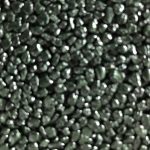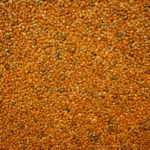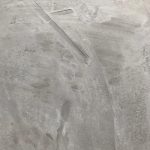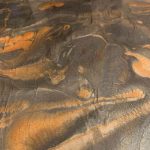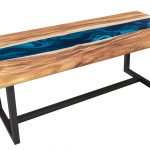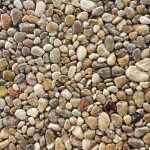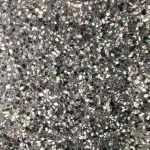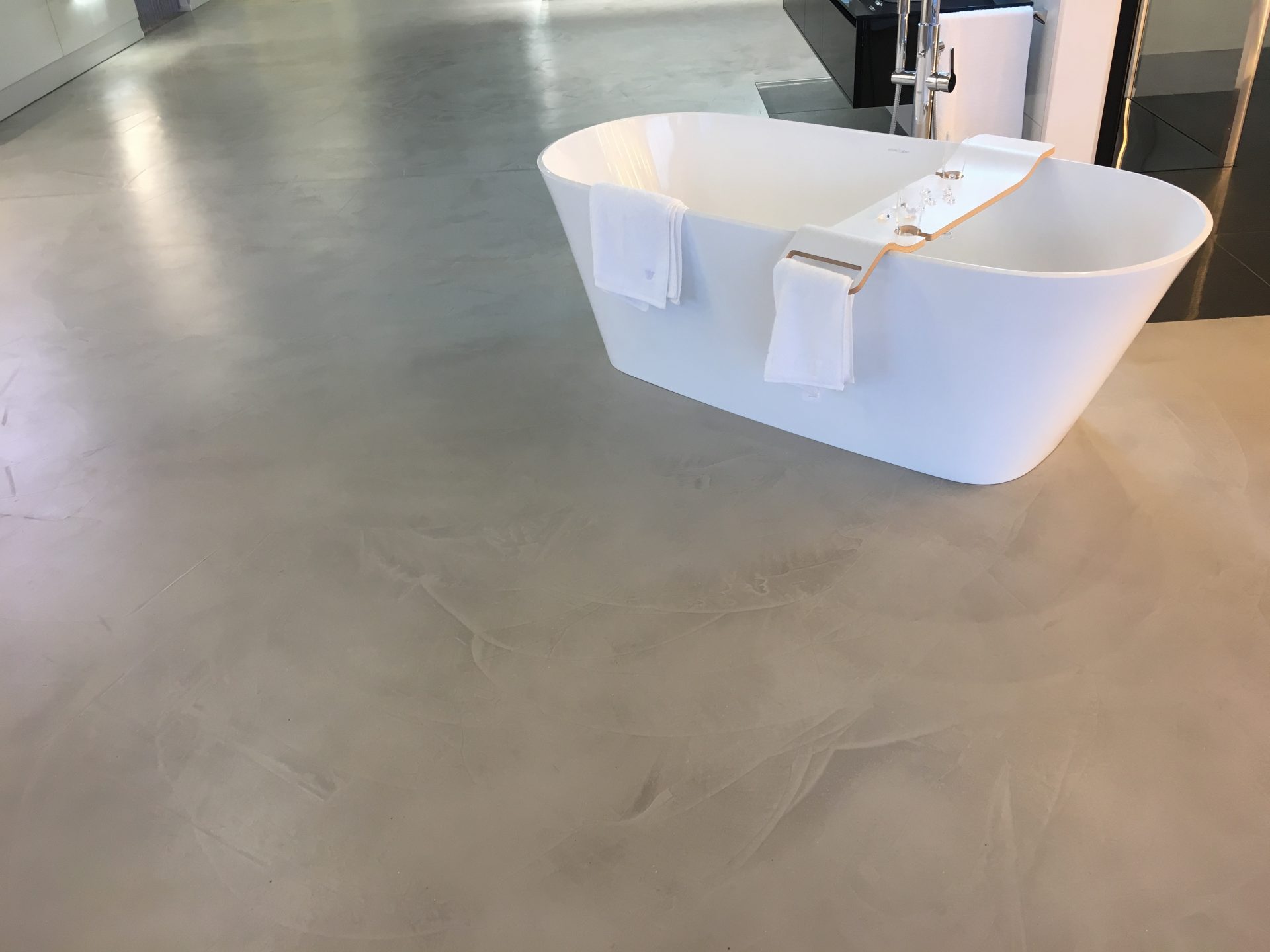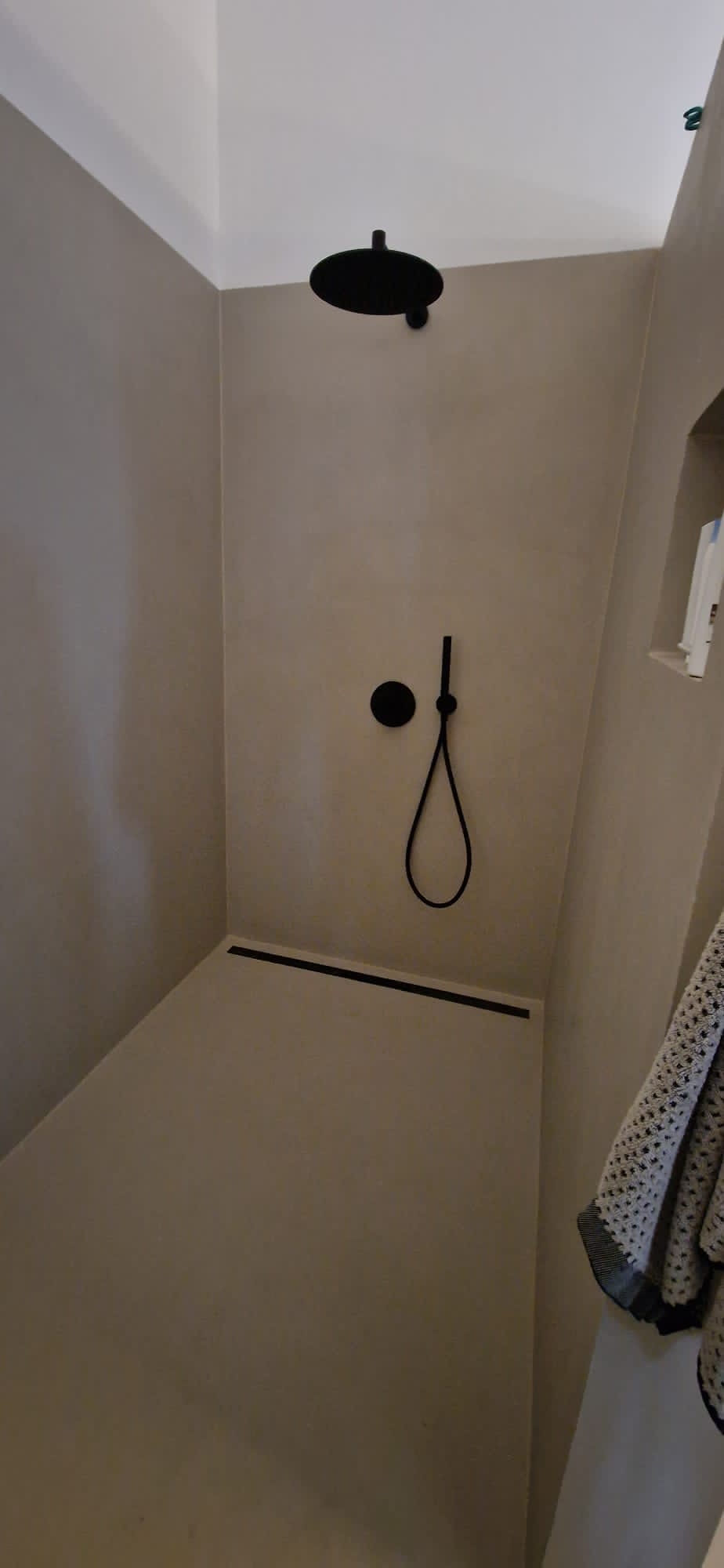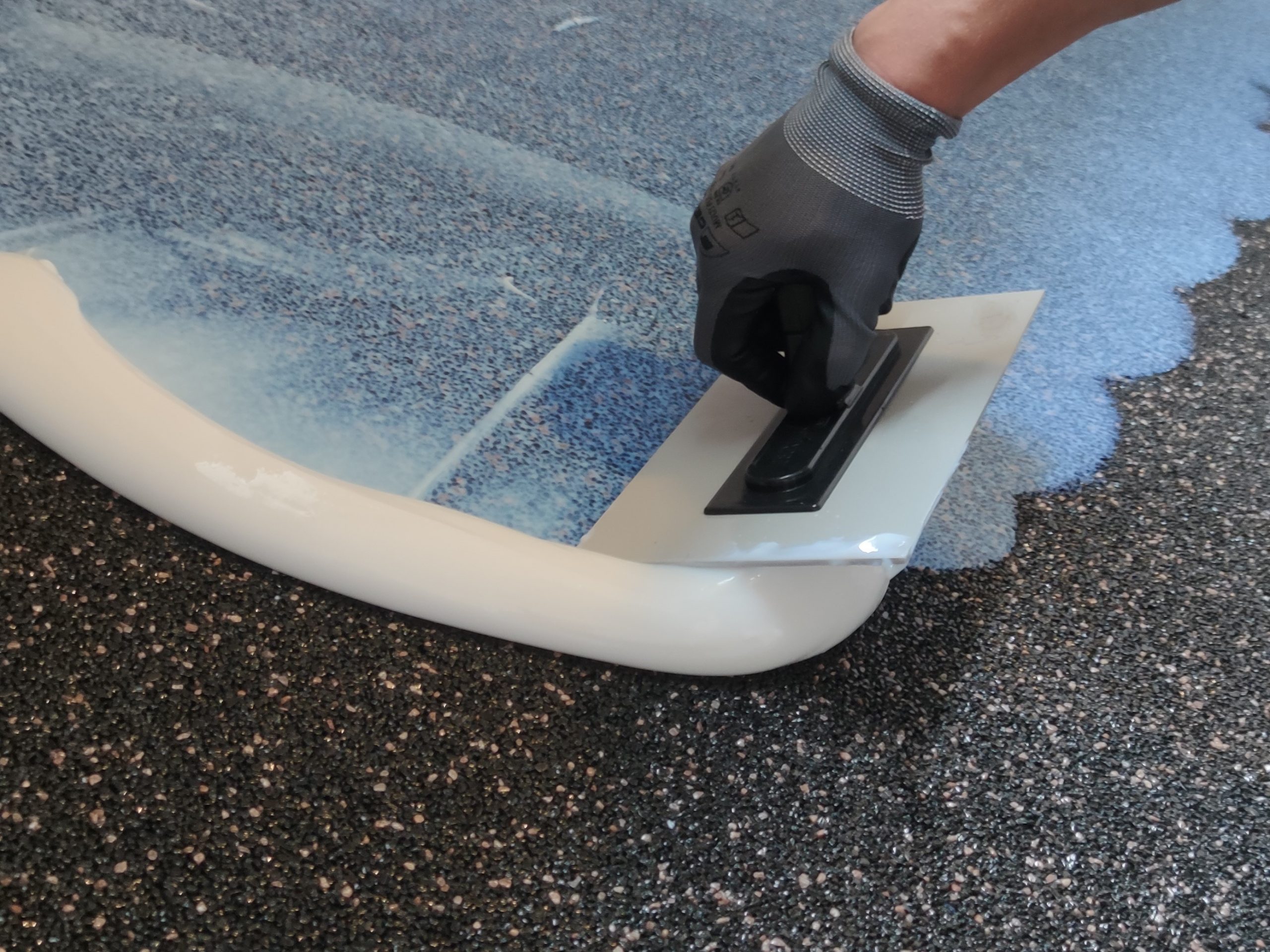In today’s world, where the pursuit of minimalism and clean design is ever more present, the bathroom is at the center of a stylish transformation: away from traditional tiled floors and walls with their prominent joints, towards a seamless aesthetic through a seamless bathroom.
Contents
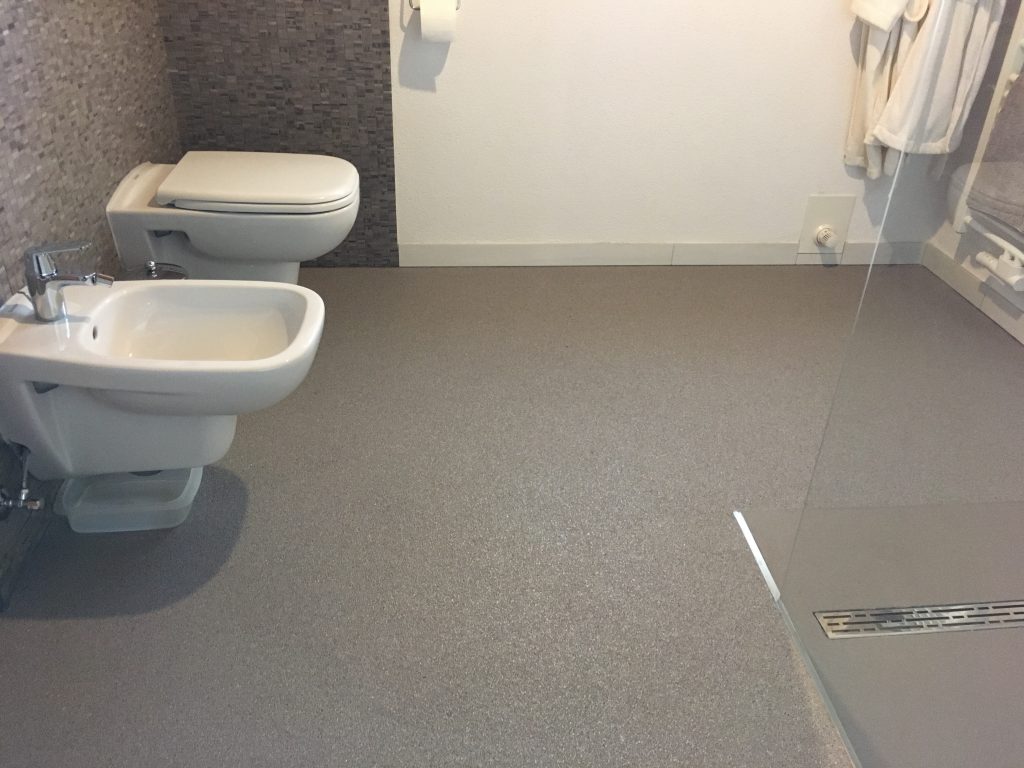
A bathroom without joints?
Sounds tempting and could actually be the solution for a modern, easy-care ambience. A bathroom without joints not only gives a feeling of spaciousness, but also offers easy cleaning and an overall more elegant appearance. But what alternatives are there to traditional tiled walls and what aspects should be considered when planning a seamless bathroom? Let’s delve into the world of seamless bathroom design and discover what makes it so attractive and worth recommending.
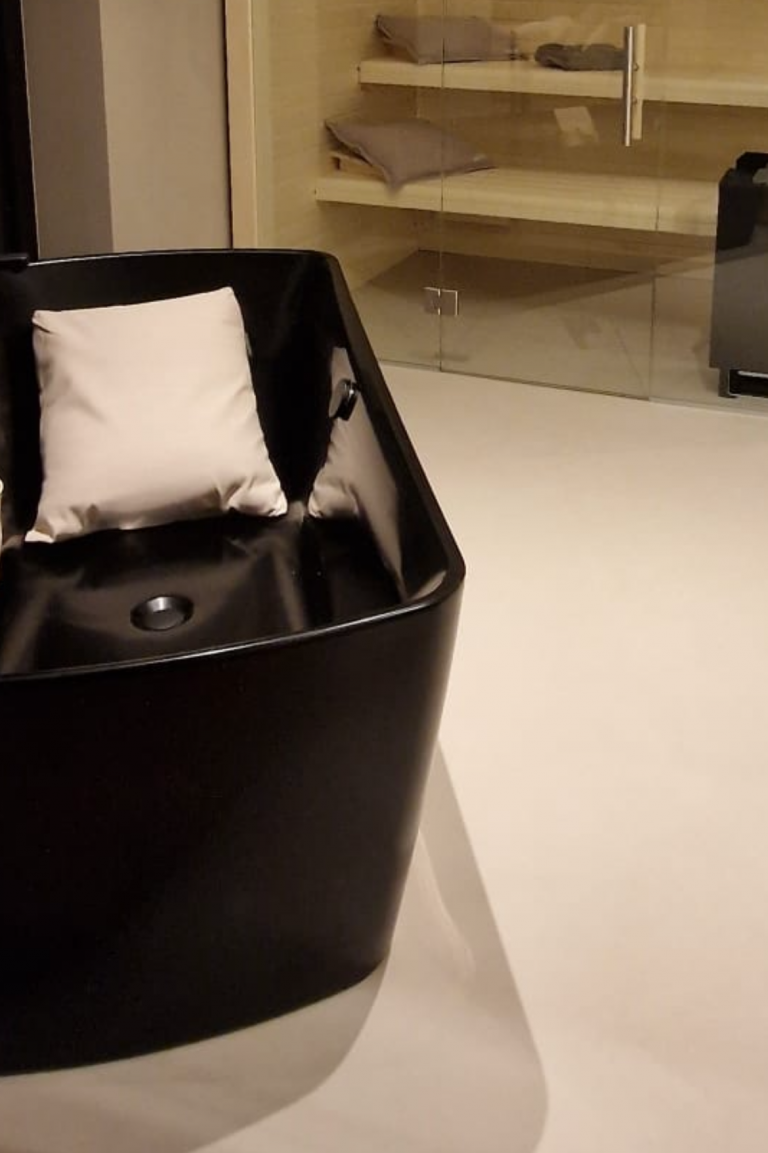
Seamless bathroom: the aesthetics and functionality of modern bathroom design How important is the design of the bathroom?
A bathroom is far more than just a functional room in the home – it is a place for relaxation, refreshment and regeneration. The design of this room therefore plays an important role in creating a pleasant ambience that is both aesthetically pleasing and functional. The concept of seamless bathrooms has long since established itself in modern interior design.
A seamless bathroom presents an innovative solution that replaces traditional tiles with seamless surfaces. This approach offers numerous advantages that fundamentally change the appearance and functionality of the bathroom.
Design without limits: Aesthetics and versatility Seamless bathroom: advantages
The greatest appeal of a seamless bathroom lies in its even appearance. The absence of joint lines creates a smooth and continuous surface that makes the room appear more spacious and open. This visual effect is particularly beneficial in smaller bathrooms, as it conveys a feeling of space. The seamless aesthetic gives the room a modern and elegant appearance that can be easily integrated into a wide variety of interior styles.
This versatility is another advantage of seamless bathrooms: different materials offer a wide range of colors, textures and surfaces that make it possible to create an individual design. From matt to glossy surfaces, from bold hues to soft nuances – the choices are varied and allow walls and floors to be designed to suit personal preferences and the style of the home.
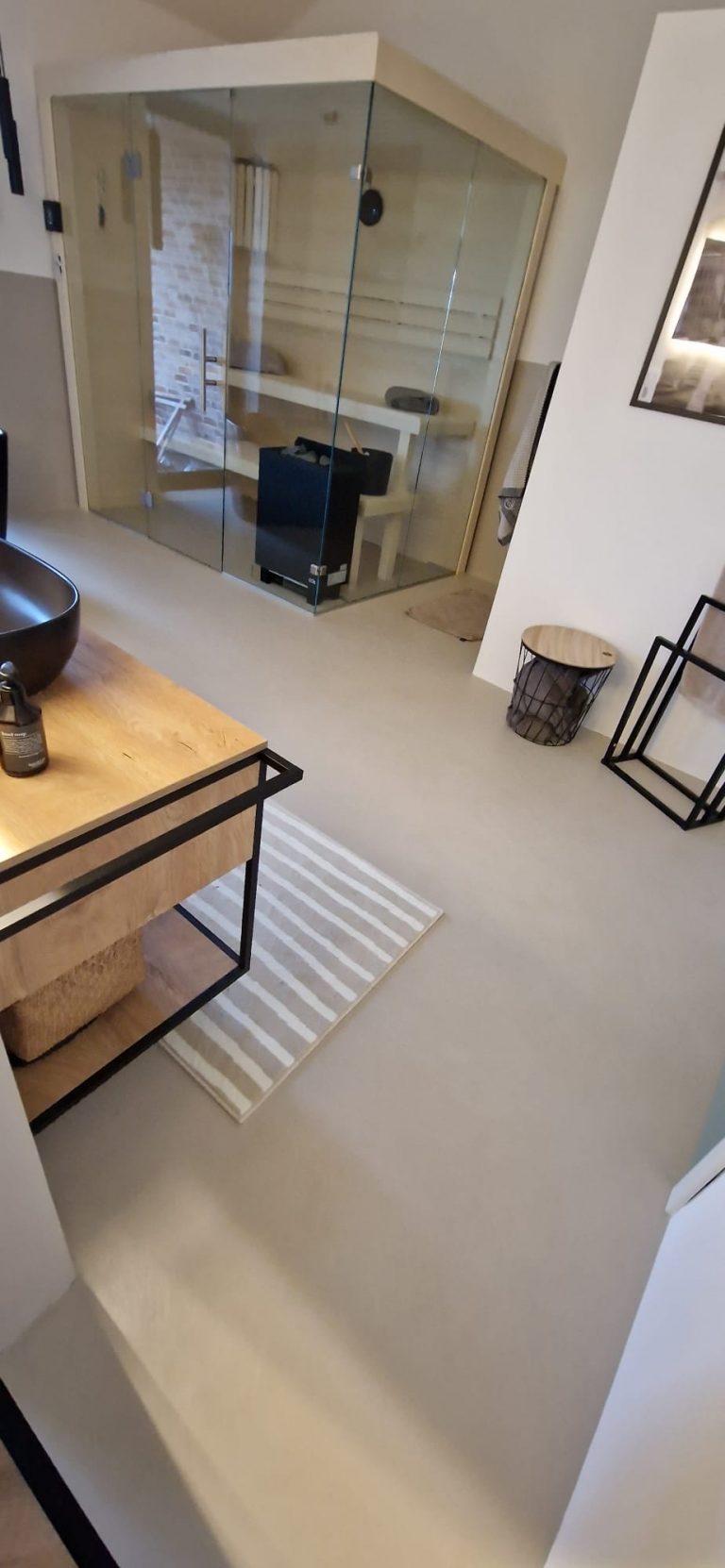
Malereibetrieb Deinert
Hygiene and ease of care: focus on functionality
In addition to the aesthetic component, a seamless bathroom also offers practical benefits. The absence of joints minimizes the build-up of dirt, mould and bacteria, making cleaning and maintenance much easier. The smooth surface is easy to clean with a damp cloth, without the need for laborious scrubbing of joints. This makes seamless bathrooms particularly hygienic and easy to clean, which is especially important in damp rooms.
In addition, seamless surfaces offer increased resistance to moisture and water. This makes them ideal for use in
showers to ensure a watertight and durable design. The water-repellent properties minimize the risk of moisture damage to the walls and ensure a longer life for the bathroom.
Seamless bathroom: disadvantages
Thorough planning is required when designing a seamless bathroom – more so than for a conventionally tiled room. Especially if natural materials are to be used for floors or walls, it is advisable to consult specialists. A key aspect here: How do plaster and paints react to moisture? Most materials can be sealed, which increases their suitability for the bathroom. Nevertheless, competent specialist knowledge is crucial to prevent moisture penetration or possible leaks. The expertise of a specialist is essential to minimize such risks.
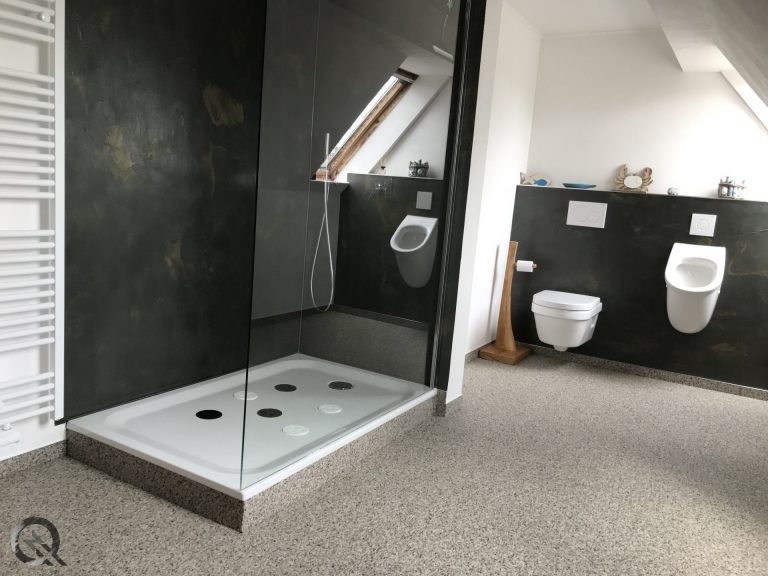
Possible materials for a seamless bathroom
Techniques and materials: the implementation of seamless bathrooms
Creating a seamless bathroom requires specialized techniques and materials. One popular method is the use of micro-cement or resin-based coatings, which can be applied to walls, floors and even furniture. This creates different surface textures:
On the one hand, stone carpets can be used to create fine-grained gravel surfaces that create a massage-like walking sensation. On the other hand, completely flat surfaces made of microcement or epoxy resin are possible, which can have a matt shimmer or a mirror-like sheen depending on the system and finish chosen. All these materials enable a seamless and hard-wearing surface that can be flexibly adapted to different shapes and surfaces.
In some cases, several systems are combined in order to utilize the best properties of the respective materials.
Advanced materials for seamless design The future of bathroom design
Seamless bathrooms undoubtedly represent the future of bathroom design. Their combination of aesthetic elegance and functional practicality makes them an attractive choice for modern homes and renovation projects. Advanced materials and techniques allow for customization while creating a hygienic and low-maintenance environment.
At a time when comfort, aesthetics and functionality are equally valued, seamless bathrooms meet the needs of discerning homeowners. Their seamless design and practical benefits make them a worthwhile investment. Bring the future into your home and get a no-obligation quote for your seamless bathroom. Together we will ensure…
… for a strong appearance!
Non-binding cost estimate and advice
Link collection
- Qubo base Schleswig
- Worth knowing: Shower design without joints
- Materials:
- Contact Quarzkiesboden Zimmermann
The basic prerequisite for a seamless bathroom is a smooth, stable substrate. A completely intact, solid tile surface can be reworked with a stone carpet, an epoxy leveling compound or a microcement substructure such as Qubo® Fiber Ground. The use of a suitable primer is important here. Qubo® SGF is particularly suitable here.
Loose tiles do not provide a sufficiently stable substrate for the construction of the seamless material layer, so these must be removed. Even after removing the tiles, the substrate must be level. For this reason, adhesive residue must be removed, holes filled or the entire floor leveled.
The installation height of seamless coatings depends on the material used. Stone carpet usually has an installation thickness of 6 mm indoors. Microcement and epoxy resin can each be laid with a thickness of 2 – 3 mm. In any case, any height compensation should be taken into account, as this increases the installation height.
The specified material thicknesses apply to both floors and walls.
There is no general answer to this question, as the range of tile prices is enormous. In general, it can be said that seamless coatings are usually more expensive than tiled surfaces. If you want to renovate particularly cheaply, you therefore have to fall back on cheap tile models.
In general, prices of more than €100 per m² should be expected when planning a seamless bathroom. In addition to the high-quality materials, it is the many work steps that are responsible for the costs.
The comparatively high costs are certainly a disadvantage compared to inexpensively planned bathrooms with simple tiled mirrors. However, when you consider the long service life, low maintenance requirements and ease of care, the investment pays for itself relatively quickly.
We generally advise against doing it yourself. The many work steps from waterproofing to complete sealing require a great deal of specialist knowledge and installation technique. The risk of endangering the building structure through a leak is too great. We therefore recommend always having a seamless bathroom installed by a specialist.
FAQ
Details and facts, key figures and explanations – here you will find answers to frequently asked questions about our Qubo® coating systems. If any details remain unclear,

